
Nikk Ogasa is a staff writer who focuses on the physical sciences for Science News, based in Tucson, Arizona. He has a master's degree in geology from McGill University, where he studied how ancient earthquakes helped form large gold deposits. He earned another master's degree in science communication from the University of California, Santa Cruz. His stories have been published in Science, Scientific American, Mongabay and the Mercury News, and he was the summer 2021 science writing intern at Science News.

Trustworthy journalism comes at a price.
Scientists and journalists share a core belief in questioning, observing and verifying to reach the truth. Science News reports on crucial research and discovery across science disciplines. We need your financial support to make it happen – every contribution makes a difference.
All Stories by Nikk Ogasa
-
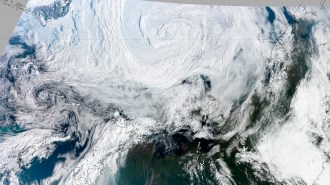 Climate
ClimateCyclones in the Arctic are becoming more intense and frequent
Over the last 70 years, boreal storms have steadily grown stronger. And climate change may make them worse, threatening both people and sea ice.
-
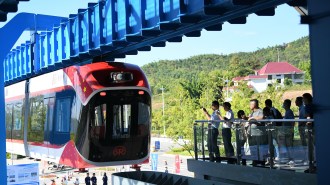 Chemistry
ChemistryHow rare earth elements’ hidden properties make modern technology possible
Because of their unique chemistry, the rare earth elements can fine-tune light for many different purposes and generate powerful magnetic fields.
-
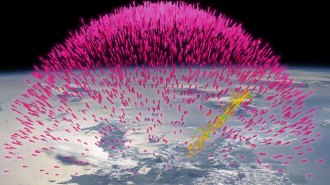 Physics
PhysicsRare ‘dark lightning’ might briefly touch passengers when flying
Gamma-ray blasts from thunderstorms might occasionally zap passing airplanes, briefly exposing passengers to unsafe levels of radiation.
-
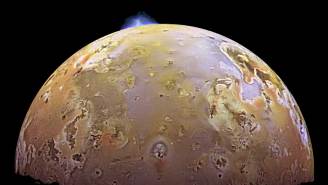 Space
SpaceIo may have an underworld magma ocean or a hot metal heart
New calculations support dueling ideas for what powers the ubiquitous volcanoes on the hellish surface of Jupiter’s innermost moon.
-
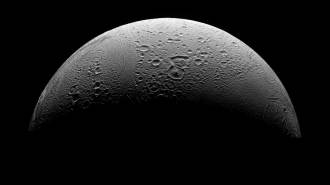 Planetary Science
Planetary ScienceThe last vital ingredient for life has been discovered on Enceladus
The underground ocean on Saturn’s icy moon may contain phosphorus in concentrations thousands of times greater than those found in Earth’s ocean.
-
 Climate
Climate2022’s biggest climate change bill pushes clean energy
Experts weigh in on the pros and cons of the United States’ first major climate change legislation, the Inflation Reduction Act, signed this year.
-
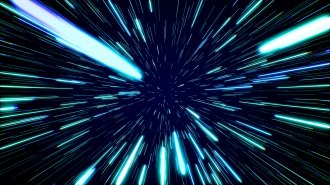 Physics
Physics50 years ago, physicists found the speed of light
In the 1970s, scientists set a new maximum speed limit for light. Fifty years later, they continue putting light through its paces.
-
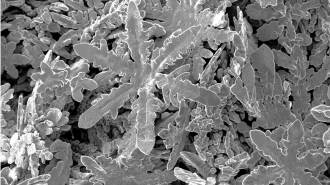 Chemistry
ChemistryHow to make tiny metal snowflakes
In a pool of molten gallium, researchers grew symmetrical, hexagonal zinc nanostructures that resemble natural snowflakes.
-
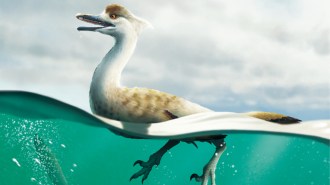 Paleontology
PaleontologyThis dinosaur may have had a body like a duck’s
Natovenator polydontus may have been adapted for life in the water, challenging the popular idea that all dinos were landlubbers.
-
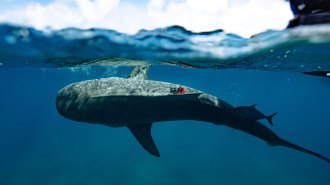 Ecosystems
EcosystemsTiger sharks helped discover the world’s largest seagrass prairie
Instrument-equipped sharks went where divers couldn’t to survey the Bahama Banks seagrass ecosystem.
-
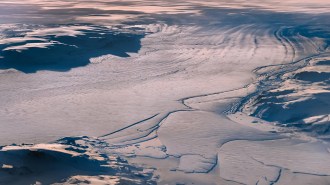 Climate
ClimateGreenland’s frozen hinterlands are bleeding worse than we thought
An inland swath of the Northeast Greenland Ice Stream is accelerating and thinning. It could contribute much more to sea level rise than estimated.
-
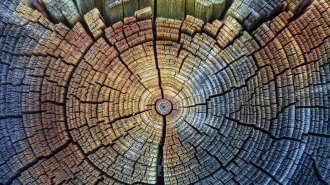 Earth
EarthCatastrophic solar storms may not explain shadows of radiation in trees
Tree rings record six known Miyake events — spikes in global radiation levels in the past. The sun, as long presumed, might not be the sole culprit.